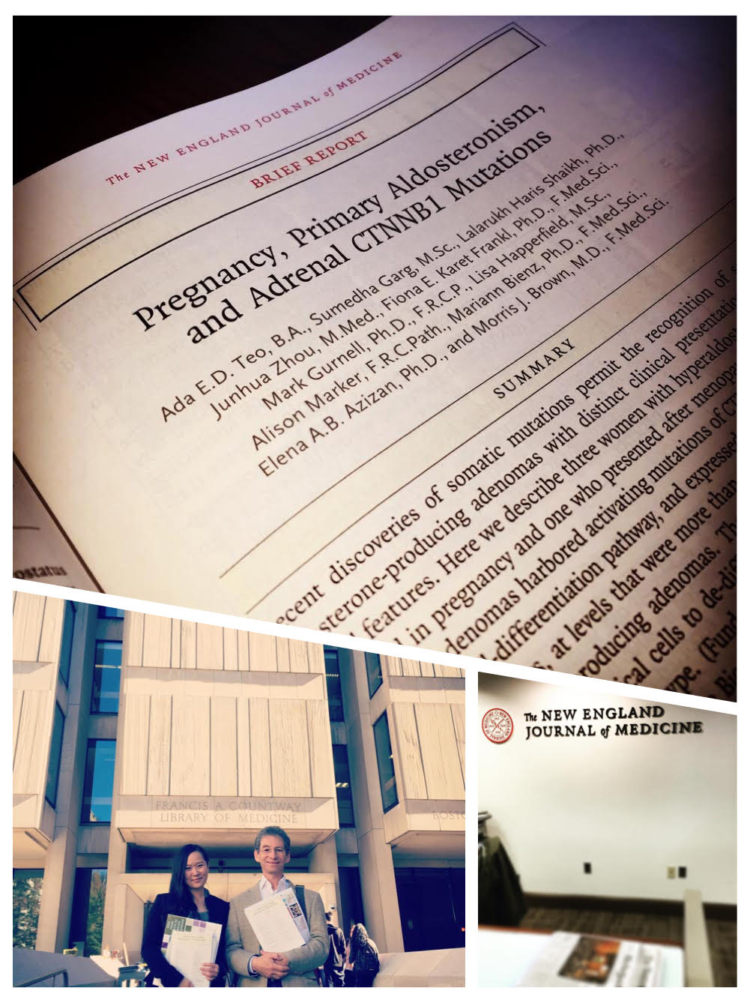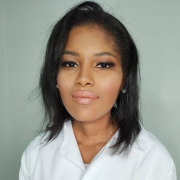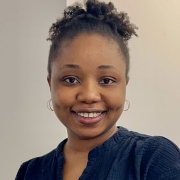How did you become interested in research relating to Hypertension and Cardiovascular Disease?
Having embarked on research in various labs since the age of 14, I am certain of my passion for research and the intellectual curiosity that drives it. At the same time, clinical experience in the hospital has shown me what a real privilege it is to be able to make a difference to patients’ lives. It is this very same commitment to patient care that made me apply to medical school. And for that purpose, considering the prevalence of the condition, research on Hypertension and Cardiovascular Disease has the greatest potential to impact our way of life.
Describe your research & the program/lab (info of your supervisor) that you are in?
My research focuses on the molecular genetics of hypertension, in particular primary aldosteronism and the discovery of contributory genes and mutations. For the PhD component of the Cambridge MB-PhD programme, I joined the lab of Professor Morris Brown in 2013, and it has been an excellent environment in which to hone my intellectual curiosity and scientific rigour. Our lab focuses on adrenal causes of high blood pressure, enabling both clinical insight and research expertise to be elegantly intertwined, with our patients benefiting from, and contributing to, research into their hypertension.
What do you consider to be your substantial scientific contribution so far (provide Pubmed PMID if possible)?
My most significant contribution thus far is the discovery of pregnancy-unmasked primary aldosteronism and its phenotype-genotype correlation
(Teo et al, N Engl J Med 2015;373(15):1429-36. Pubmed PMID: 26397949).
I look forward to contributing more articles in the field soon!
What is your favourite manuscript from a lab or mentor other than your own (provide Pubmed PMID if possible)?
I thoroughly enjoyed reading the 2011 paper in Science by Choi et al (K+ channel mutations in adrenal aldosterone-producing adenomas and hereditary hypertension, Pubmed PMID: 21311022). Considered one of the landmark papers in our field, this work led to a whole new era of tumour genotyping and the elucidation of many more causative mutations that characterise this condition.
Where do your research strengths lie? Why? What are your research weaknesses? How will you improve?
I believe my training as an MB-PhD student has brought a unique perspective to my study of human disease and hypertension, as well as allowing me to anticipate possible challenges in implementing novel therapies. This strong translational focus in my research is something that I hope to continue pursuing in my career as a clinician-scientist. Being the current Editor-in-Chief of the Cambridge Medicine Journal, I also have some experience in the editorial review process.
In terms of weakness, I would benefit from greater knowledge of bioinformatics and statistics, both of which will be invaluable in a research career. I am currently making full use of the extensive resources we have here in Cambridge (such as the various EMBL-EBI training courses) to equip myself with these skills.
Describe your unforgettable (proudest) moment in science, and the most challenging situation that you have had to overcome (lessons learnt) so far?
Perhaps my proudest moment in science was when I received the news that my first-author paper was accepted for publication in the New England Journal of Medicine. It was indeed an indescribable feeling when you see that the project you’ve been leading and the team’s collaborative effort has come to fruition! I owe this to my mentor and friend Prof Morris Brown for his unwavering support.






















